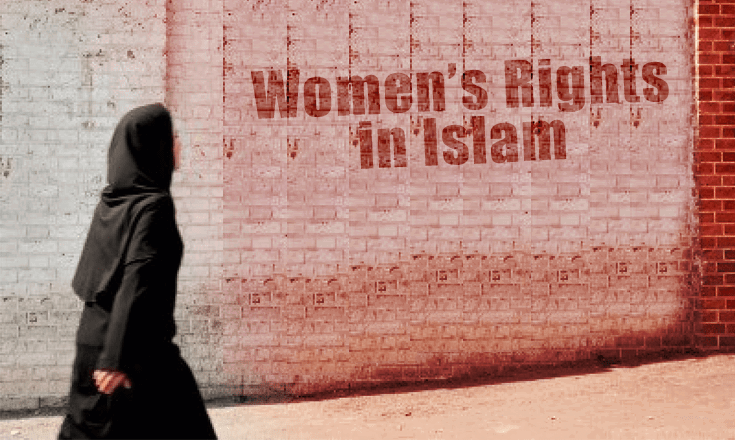No Rights for women in Islam:Women’s day special


Muslim women are not considered equal to men or valued equally with men in Islamic society.The Holy Qur’an states clearly that women are to be subordinate to men. Qur’an 4.34: “Men stand superior to women in that God hath preferred some of them over others, and in that they expend of their wealth; and the virtuous women, devoted, careful (in their husbands’) absence, as God has cared for them. But those whose perverseness ye fear, admonish them and remove them into bed-chambers and beat them; but if they submit to you, then do not seek a way against them; verily, God is high and great.”
Behavior of the Prophet Muhammad clearly shows his value and respect for Khadijah. Khadijah also is widely revered by Muslims. However, reverence for Khadijah does not necessarily translate to respect for all women.
One of the attributes of Allah is that Allah has no body and no gender. Yet Allah is always referred to as “He.” In Arabic, genderless nouns are generally given the male form. This clearly illustrates that in Arabic Islamic society, males are seen as superior to females.
The requirement that women cover their hair and dress modestly is demeaning and discriminatory. The restriction is used to justify mistreatment of women with uncovered hair, exposed arms, etc., by suggesting they “asked for it” by being immodest.
While many specifics of Sharia law (Islamic religious law) are not found in the Qur’an, traditional Muslim texts and practice are used to justify restrictions which limit women’s access to education, transportation, employment, making women reliant on men for these fundamental rights and denying women self-determination. In countries where this is the case, women and girls experience oppression, whatever the Qur’an says.
If lowering the eyes and softening the voice are recognitions of personal power and displays of humility before God, why are men not required to do it as well as women? The fact that this is not required of men demonstrates the expectation of women being submissive.
Unwillingness to question different requirements for men and women is a sign of ongoing oppression. Does something being done many times and having the force of habit make it right?
Acknowledging that Muhammad was ahead of his time, valued women enough to assert their equality with men, and changed their standing in society for the better, would he not want today’s women also to be equal with men? If Muhammad could see that the way Sharia (Islamic law) is applied today keeps women from opportunity, freedom, and happiness, would he want things done differently?
I measure the progress of a community by the degree of progress which women have achieved. – B.R Ambedkar
DISCLAIMER: The author is solely responsible for the views expressed in this article. The author carries the responsibility for citing and/or licensing of images utilized within the text.
